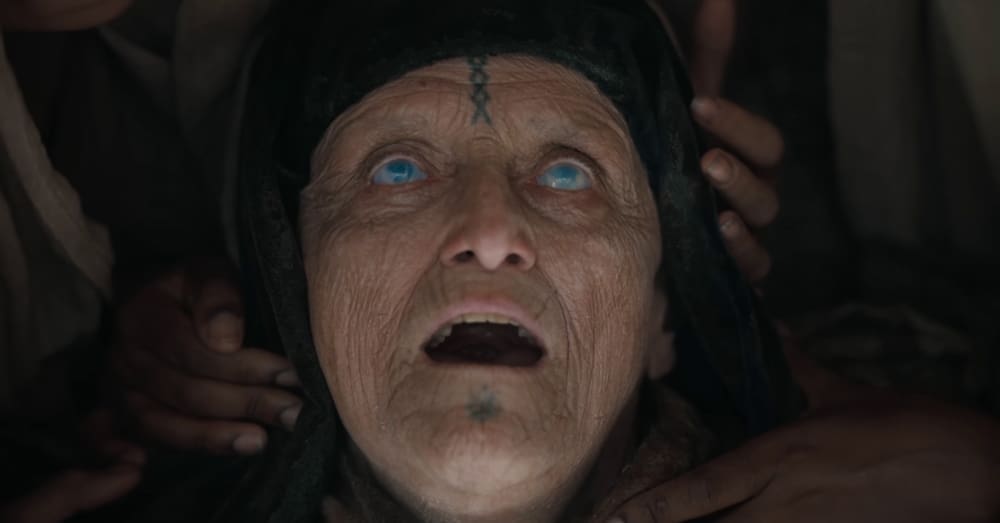
A seven-minute extended sneak preview of Denis Villeneuve’s Dune: Part Two has been released on the Rotten Tomatoes’ Movieclips channel. The preview delightfully brings to life a dramatic scene from Frank Herbert’s famous novel where Paul Atreides mounts a gargantuan sandworm and successfully begins to control it. Laced with dramatic tension, stirring music, and spectacular visuals, the scene artfully portrays the unstoppable, hurricane-like power of the sandworm.
While this sneak peek remains faithful to the spirit of the original novel, other promos for the film indicate that distasteful liberties have been taken with the source material, specifically an invented plotline involving a conflict between various characters over the nature of their religion. The screenwriters appear to have inserted their own shallow and illiterate musings about “faith” into the narrative.
In Herbert’s original novels, the Bene Gesserit Sisterhood foresaw that a messiah or superman was needed to protect the human race from a nebulous alien menace that would arrive thousands of years in the future. Thus they began the arduous task of breeding this superman—a warrior-prophet—into existence. In order to ensure that the human race would recognize this messiah when he arrived, they sent out missionaries to every corner of the galaxy to infiltrate every religion and plant their prophecies.
Dune: Part Two will feature a totally invented storyline in which the desert-warrior Fremen quarrel over the nature of their religion when they discover that their prophecies were ‘planted’ by the Bene Gesserit. Zendaya’s character declares, “This prophecy is how they enslave us!” Javier Bardem’s Stilgar replies, “I don’t care what you believe! I believe!”

In promos for the film, Paul Atreides (the aforementioned ‘messiah’) appears to be tormented by the realization that the prophecies about him are self-fulfilling and manipulative. In the novels, however, the character is not particularly disturbed by the revelation.
Hollywood films typically present a shallow or even New Age concept of “faith”—portraying it either as an irrational belief in something you know isn’t actually true or equating it with the satanic practice of “manifesting,” where you force your desires into reality through pure strength of will. Dune: Part Two will conform to these Hollywood tropes.
RELATED: Dune: Part Two Appears To Be Pushing Feminist Narratives With Zendaya’s Chani
Promos for the film indicate that the Fremen will discover the Bene Gesserit plot. Zendaya’s character will become indignant and encourage her people to cast off their religious beliefs, while Stilgar insists that they can MAKE the prophecies true just by believing in them.
In Herbert’s novels, the self-fulfilling, manipulative nature of the prophecies does not become widely known. While some of the more knowledgeable characters express a cynical attitude about the situation, there is never any doubt about humanity’s need for a savior. The alien threat is real, and consequently, the faith is rational. There are no themes involving the rejection of tribal religions. Paul Atreides condemns the Bene Gesserit for their sociopathic behavior, and most of his internal struggles revolve around the violence and bloodshed he knows will be necessary to achieve his apotheosis.

Leave a Reply